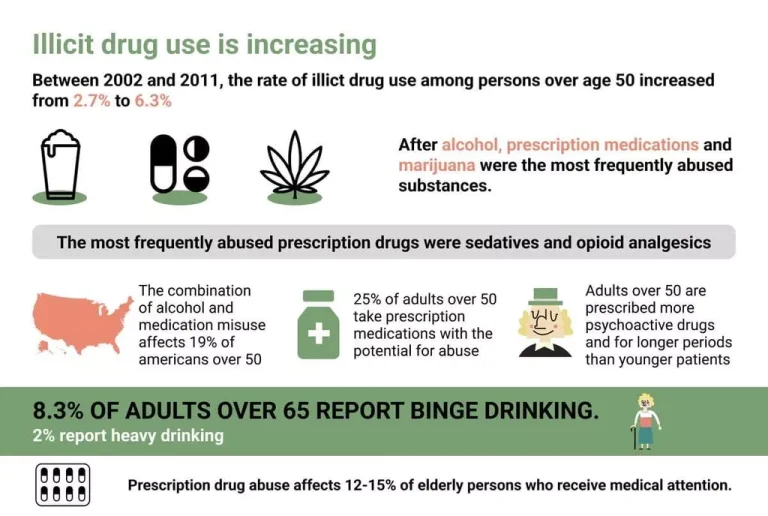
Thus, bone marrow analysis of alcoholic patients during the neutropenic stage demonstrated that virtually none of the neutrophil precursors had matured beyond an early developmental stage. Moreover, the neutrophil stores that are maintained in the bone marrow to allow a quick response to a bacterial infection were depleted more rapidly in active alcoholics than in healthy control subjects. The precise mechanism underlying vacuole development in blood cell precursors currently is unknown.
Alcohol’s Effects on High Density and Low Density Lipoprotein Levels
One approach included overexpression of proteins such as insulin-like growth factor (IGF-1), which stimulates growth and cell proliferation and has antiapoptotic effects (see Zhang et al. 2014). In contrast to control mice, the IGF-1–expressing animals exhibited no evidence of changes in expression of antioxidant enzymes (i.e., superoxide dismutase-1) or any decreases in contractile function after 16 weeks of ethanol consumption. The findings suggest a protective effect of overexpression of IGF-1 in the transgenic animals (Zhang et al. 2014).

Long-Term Cardiovascular Health Concerns of Alcohol
Here’s what you need to know about erythritol, plus what it’s commonly found in. Korin Miller has spent nearly two decades covering food, health, and nutrition for digital, print, and TV platforms. Her work has appeared in Women’s Health, SELF, Prevention, The Washington Post, and more. The sugar substitute is typically used in flavored waters, ice cream, and other low-calorie treats. 6Alcohol also may affect LDL and triglyceride levels, but its influences on these substances are beyond the scope of this article (for more information, see the exhaustive review by Dreon and Krauss 1996).
Effects & Risks of Drinking Alcohol
In most investigations, this means consuming more than 5 standard drinks on a single occasion for men and more than 4 standard drinks for women. NIAAA defines binge drinking as a pattern of drinking alcohol that brings the does alcohol affect blood clotting blood alcohol concentration to 0.08 percent or above. A typical adult consuming the defined number of standard drinks for binge drinking would reach a blood alcohol concentration of 0.08 in about 2 hours (NIAAA 2015b).

- One of the oldest blood thinners still in widespread use is warfarin (Coumadin).
- Alcoholic drinks (whisk[e]y, vodka, red wine) were selected according to individual preferences; the amounts were adjusted to the respective ethanol concentrations.
- In addition, other atherogenesis-related factors (e.g., the influence of hormones) that are not addressed in this article may be influenced by the use of alcohol, and research is needed to investigate these factors as well.
- Many researchers have found that alcohol intake increases HDL cholesterol (HDL-c) levels, HDL (“good cholesterol”) particle concentration, apolipoprotein A-I, and HDL-c subfractions (Gardner et al. 2000; Muth et al. 2010; Vu et al. 2016).
- However, people should not consume alcohol instead of taking medications as a healthcare professional has prescribed.
Just like the Dietary Guidelines, AHA and the CDC do not recommend alcohol consumption for individuals who do not already drink. They also encourage people who drink to do so in moderation in order to minimize some of the potential negative side effects of long-term alcohol use. Other researchers have used genetic approaches (i.e., transgenic animals) to prevent ethanol-induced oxidative stress.

Under the influence of certain proteins (i.e., growth factors), this stem cell multiplies and differentiates into increasingly committed precursor cells. Through several intermediate stages, these precursors differentiate further and develop into the mature cells circulating in the blood or residing in the tissues. Blood cells make up about 45 percent of the blood volume; the remaining 55 percent consists of a watery liquid called plasma.
Sometimes, however, the iron is not incorporated properly into the hemoglobin molecules. Instead, it is converted into a storage form called ferritin, which can accumulate in RBC precursors, often forming granules that encircle the cell’s nucleus. These ferritin-containing cells, which are called ringed sideroblasts, cannot mature further into functional RBC’s. As a result, the number of RBC’s in the blood declines and patients develop anemia. Many patients also have some circulating RBC’s that contain ferritin granules called Pappenheimer bodies. The presence of these cells in the blood serves as an indicator of sideroblastic anemia and can prompt the physician to perform a bone marrow examination to confirm the diagnosis.
A concerning relationship between erythritol and blood clots
Profound hypophosphatemia may cause the phosphate and ATP levels in the RBC’s to decline substantially. This depletion of the store of ATP in the RBC’s leads to increased rigidity of the RBC membranes, eventually damaging the cells. These damaged cells are prematurely destroyed in the spleen, and the patient may develop acute hemolytic anemia. (A) Normal RBC’s have a characteristic disclike shape; the cell in the center is a neutrophil. (B) Stomatocytes have a defect in their membranes that causes them to assume a mouth-, or stoma-, like shape when viewed under a microscope. (C) Spur cells are characterized by spikelike protrusions that result from the assimilation of excess cholesterol into the cell’s membrane.

Increased Bleeding
However, it is always advisable to consult a doctor or pharmacist before drinking alcohol with any new medication. But sometimes, a blood clot can form in — or travel to — an artery that supplies your heart or brain with oxygen-rich blood. ‘However, if you look at middle-aged America, the average person has two to three risk factors for heart disease, and 70% of us are going to develop heart disease in our lifetime, so maybe we should all be considering action,’ he said. ‘We saw enhanced clotting, using measures of how quickly clots will occlude a vessel or stop blood flow, which is like a model of a heart attack or a stroke,’ he said. Rather than erythritol, Hazen advised consumers to opt for moderate amounts of natural sweeteners containing sugar, glucose, honey or fruit.
Beer and Wine
It’s important to note that these risks can vary depending on individual factors such as genetics, overall health, and alcohol consumption patterns. While alcohol may have blood thinning effects, it may also increase the risk of cardiovascular conditions and blood clots. Short-term alcohol use can lead to high blood pressure and thinned blood because it hinders blood cells’ ability to clot. Long-term, excessive drinking can decrease your heart’s ability to function correctly. A recent pilot study found that drinking a beverage containing calorie sweetener erythritol, an artificial sweetener used to bulk up stevia and monk fruit and to sweeten low-carb keto goods, more than doubled the risk of blood clotting in ten healthy participants. Holland suggested that people should “err on the side of caution” regarding artificial sweeteners like erythritol, especially for individuals at risk of cardiovascular issues or with conditions related to an increased risk of blood clots.